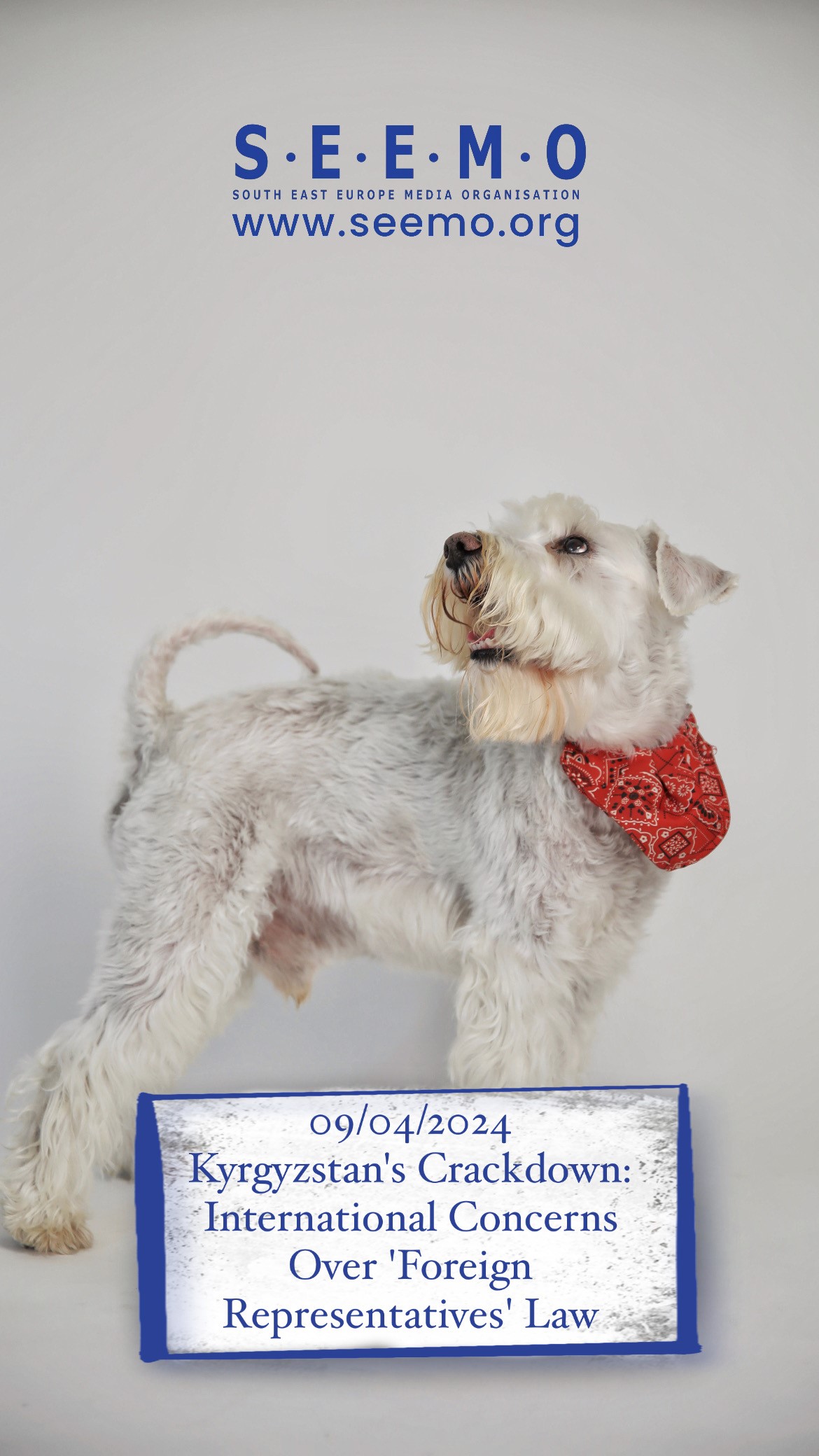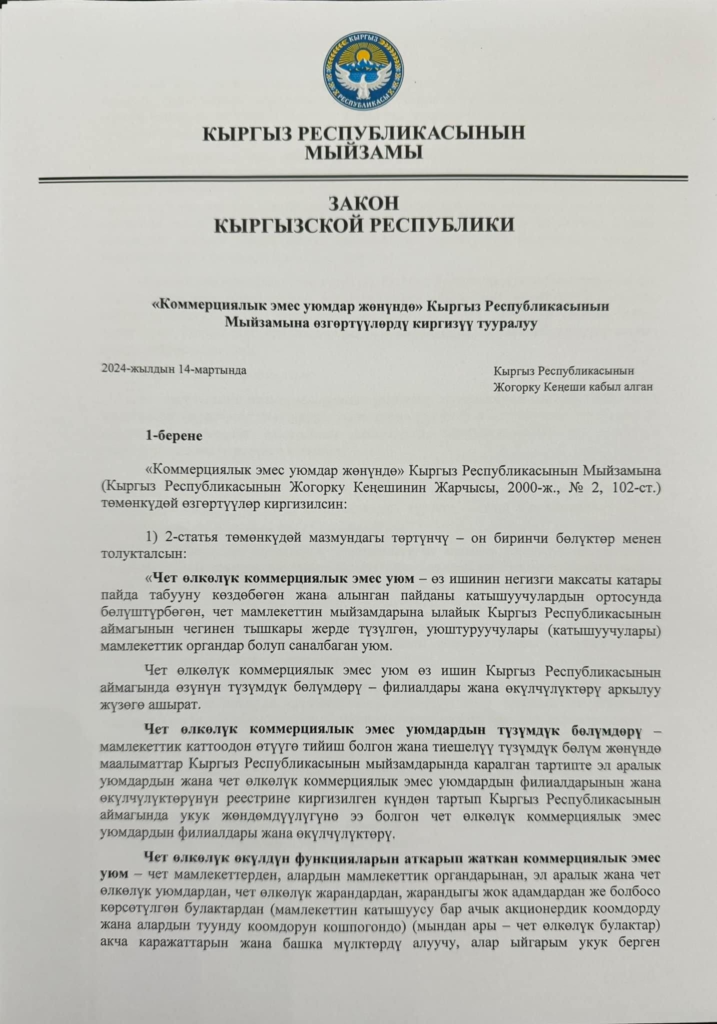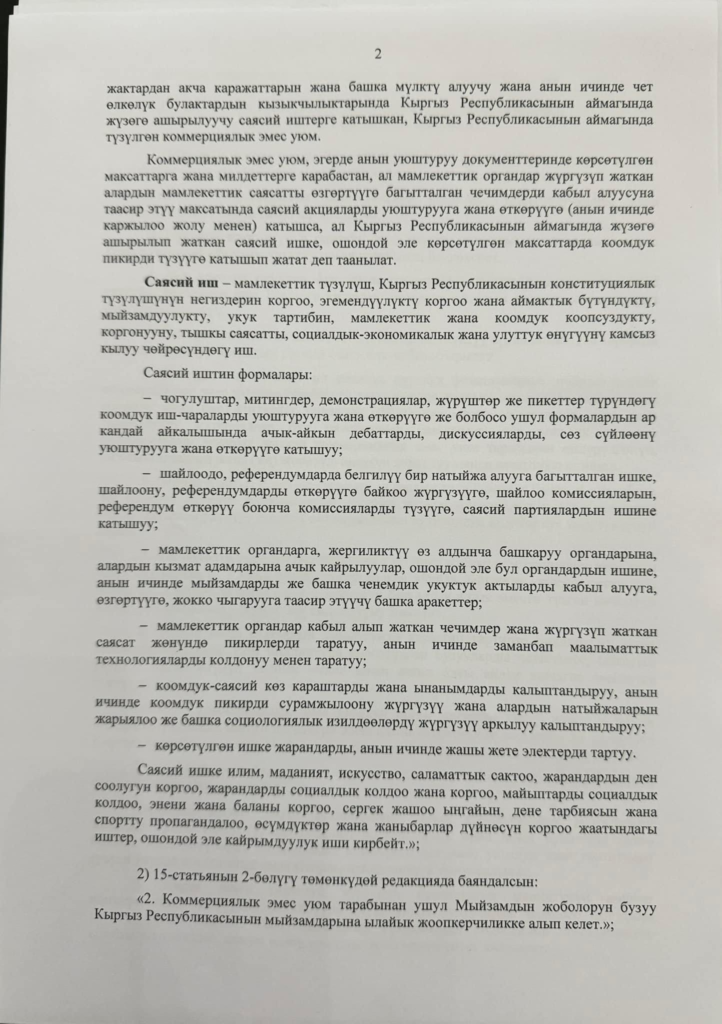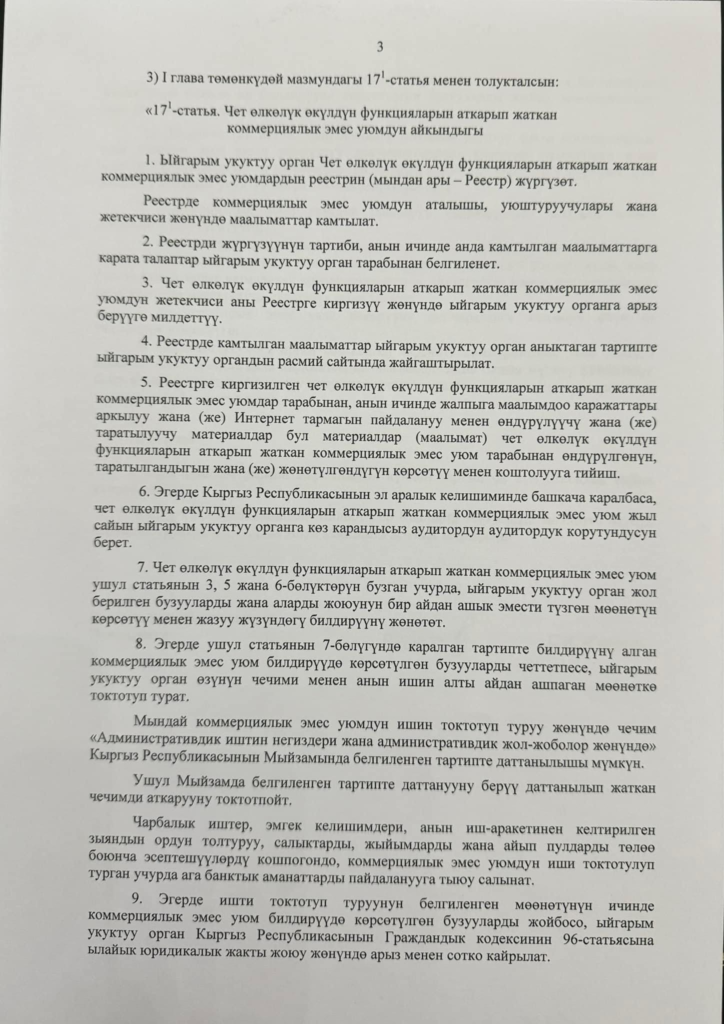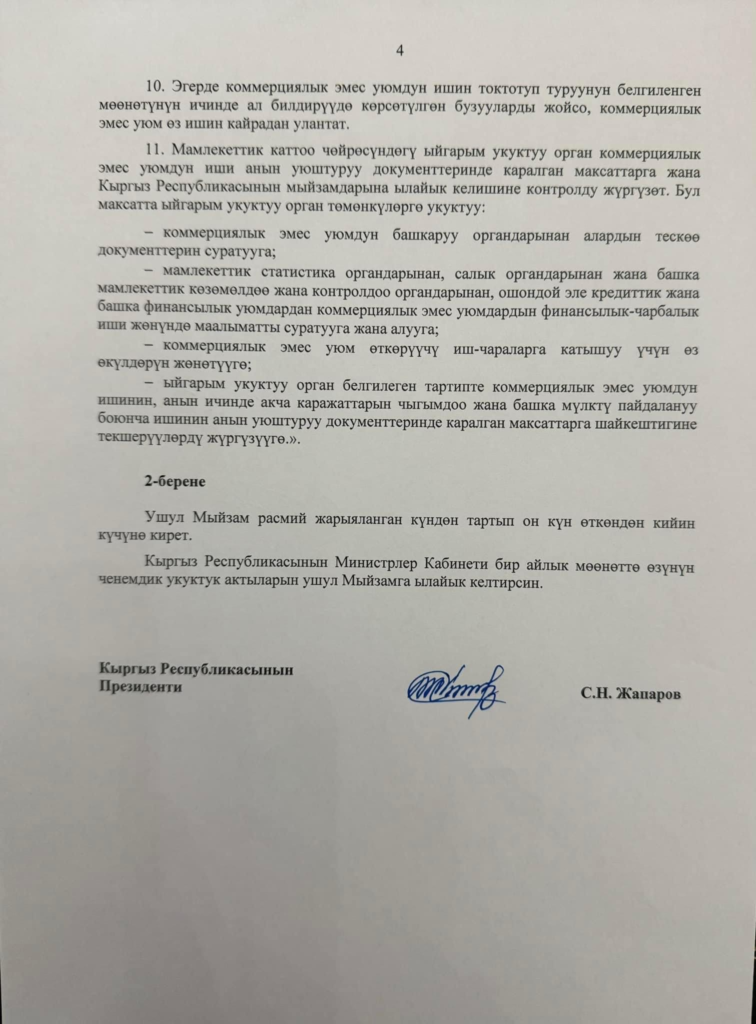Kyrgyzstan’s “foreign representatives” bill has sparked serious concern among international observers. Both the Director of the Office for Democratic Institutions and Human Rights (ODIHR), Matteo Mecacci, and the OSCE Representative on Freedom of the Media, Teresa Ribeiro, have voiced apprehension over the potential repercussions of this legislation.
This new bill impose stringent reporting requirements and oversight powers on non-commercial organizations receiving foreign funding and engaging in political activities. Media rights groups and non-profit organizations operating news outlets would also be affected. This move has raised alarms about the erosion of media freedom and civil society’s ability to operate independently in Kyrgyzstan. Despite international criticism and calls for reconsideration, the bill became a reality.
In January 2024, Kyrgyz parliament’s committee for constitutional laws approved the draft law, resembling Russia’s repressive legislation on “foreign agents.” Although the bill was scheduled for discussion on 7 February 2024, its debate was postponed for unknown reasons. This delay followed appeals from numerous non-governmental organizations within Kyrgyzstan, as also international organisations and NGOs including SEEMO, highlighting concerns that the bill’s provisions could severely impede their work and freedom of expression. The legislation obliges organizations receiving foreign funding and engaging in political activities to report to authorities, introducing broad oversight powers and potential criminal sanctions for vaguely defined offenses.
On Thursday 14 March 2024, Kyrgyzstan’s parliament approved in a final reading, without any discussion the new legal regulation.
On Tuesday 2 April 2024, Kyrgyz President Sadyr Nurgojo uulu Japarov (Zhaparov – Садыр Нургожо уулу Жапаров) signed the law. After that he posted on his official Facebook profile:
I have signed the Law that is of interest to the public, non-governmental organizations and their foreign partners. Earlier, I was approached by non-governmental organizations and their foreign partners who asked me not to sign this law. Why was that? NGOs that have been working in our country for 30 years were not registered anywhere. They were not accountable to anyone. They just opened bank accounts, took money from foreign donors and used it as they saw fit, including for personal purposes. From now on they will be registered with the Ministry of Justice like everyone else. They will open bank accounts. They will start to work openly. There will be no more confusion.
(more online: www.facebook.com/japarov.sadyr/posts/pfbid02HxLEfMMiTVaJsSuJEWt53meVggkr9vKRkhDex6c5dSULb5ziLS76e9ftHCgrWh1Ll?locale=ru_RU)
The officials argue that it aims to increase transparency in Non-governmental organization (NGO) activities, but critics argue that it will instead stifle civil society and independent media. The bill’s provisions grant authorities broad powers to monitor and regulate NGO activities, potentially leading to arbitrary enforcement and the stifling of dissent. This has raised fears of a significant rollback in Kyrgyzstan’s democratic progress, with civil society groups facing the prospect of increased government scrutiny and possible criminalization of their work.
The South East Europe Media Organisation (SEEMO) condemns the implementation of Kyrgyzstan’s ‘foreign representatives’ law, as it poses a threat to the autonomy and effectiveness of civil society organizations in the country and independent media. By enforcing this legislation, Kyrgyzstan is undermining fundamental principles of freedom of association and expression, stifling dissenting voices, and jeopardizing the crucial role that civil society plays in upholding democracy and human rights. SEEMO is especially worried about developments in Kyrgyzstan, after the authorities arrested in January this year 11 journalists in Bishkek (Бишкек ) linked to the investigative platform Temirov Live and raided the privately owned news agency 24.kg, and only short period latter they shuttered the critical news website Kloop.
South East Europe Media Organisation (SEEMO) is a regional non-governmental, non profit network of editors, media executives and leading journalists in Southeast, South, East and Central Europe. SEEMO members are in Albania, Armenia, Azerbaijan, Belarus, Bosnia-Herzegovina, Bulgaria, Croatia, Cyprus, Czech Republic, Estonia, Georgia, Greece, Hungary, Kazakhstan, Kosovo, Kyrgyzstan, Latvia, Lithuania, Malta, Moldova (with the territory of Transdnestria), Montenegro, North Macedonia, Poland, Romania, Russia, Serbia, Slovakia, Slovenia, Tajikistan, Turkmenistan, Türkiye / Turkey, Ukraine and Uzbekistan. Austria, Italy, Vatican and San Marino have a special status in SEEMO. SEEMO has over 3000 individual members, and additional media as corporate members.
#fyp #mediafreedom #seemo #freespeech #southeasteuropemediaorganisation #ngo #journalist #kyrgyzstan #SEEMO #pressfreedom #mediafreedom #freemedia

